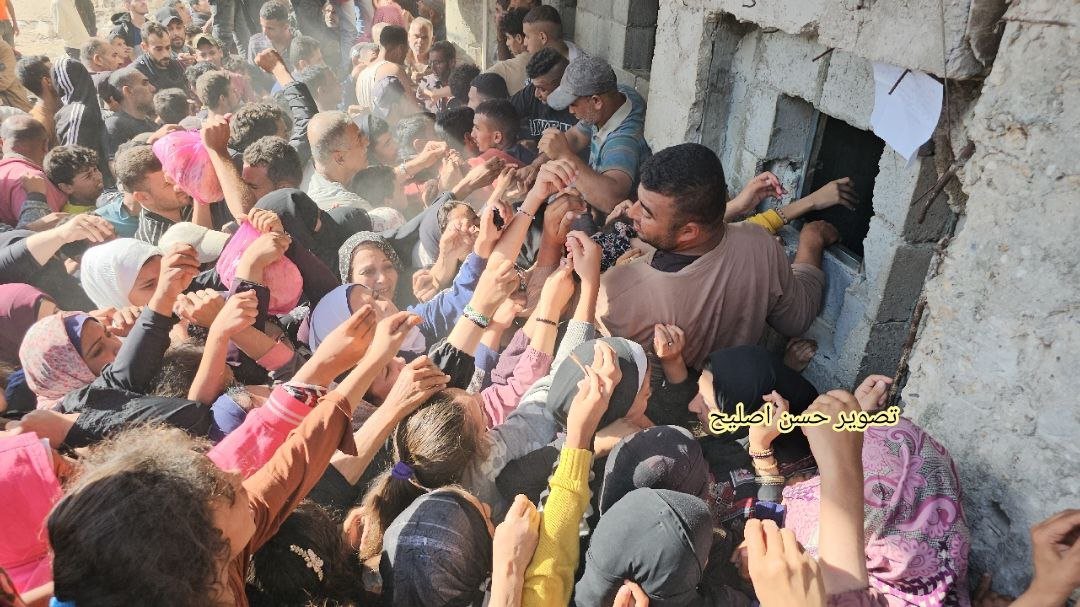
Severe famine is spreading in southern Gaza due to the intensified Israeli blockade and attacks, preventing the entry of essential food supplies.
Israel has permitted only four out of 66 planned humanitarian aid missions to northern Gaza during the first 20 days of October, with no food aid allowed for 14 days, the UN humanitarian office (OCHA) said.
OCHA spokesman Jens Laerke detailed a severe deterioration in humanitarian access, revealing that Israeli authorities rejected 28 requests and blocked seven others for coordinated aid movements to Beit Hanoun, Jabalia, and Beit Lahiya regions in northern Gaza.
“For the first two weeks of October, 85% of the movements (aid attempts) were denied,” Laerke told Anadolu in a written response, highlighting the increasingly dire situation in northern Gaza.
During a visit on Oct. 19, an OCHA team found extreme overcrowding in northern Gaza, with some displaced persons forced to live in restrooms due to severe shelter shortages, Laerke said.
Laerke described a particularly challenging incident where a joint team from the UN, an international NGO, and the Palestine Red Crescent Society made nine attempts before finally reaching Kamal Adwan and Al-Sahaba Maternity hospitals on Oct. 12, facing multiple rejections and obstacles from Israeli forces.
The humanitarian crisis has deepened following Israel’s ground operations in Rafah, with aid deliveries dropping dramatically. “For all entry points, the daily average of humanitarian truckloads in September (54) was only a third of what it was in April (165),” Laerke noted.
Distribution of the limited aid faces multiple obstacles, including damaged roads, forced displacement blocking main supply routes, rejected coordination requests, overcrowding, and lack of public order.
“Gaza is also the world’s most dangerous place for the UN and its partners to operate,” Laerke emphasized, citing the deaths of 300 colleagues and the bombing of warehouses. He added that roads are damaged and littered with unexploded ordnance.
Despite these challenging conditions, humanitarian workers continue their efforts to deliver life-saving assistance to Palestinians in Gaza wherever possible, though the situation remains critically undersupplied and increasingly dangerous for aid workers, Laerke said.
The Israeli army has continued a devastating offensive on the Gaza Strip since a Hamas attack last year, despite a UN Security Council resolution demanding an immediate cease-fire.
More than 42,700 people have since been killed, mostly women and children, and over 100,300 others injured, according to local health authorities.
The Israeli onslaught on Gaza has displaced almost the territory’s entire population amid an ongoing blockade that has led to severe shortages of food, clean water, and medicine.
Israel faces a genocide case at the International Court of Justice for its actions in Gaza.






